Today Current Affairs: 24th June 2021 for UPSC IAS exams, State PSC exams, SSC CGL, State SSC, RRB, Railways, Banking Exam & IBPS, etc
Table of Contents
National Maritime Heritage Complex: Lothal:
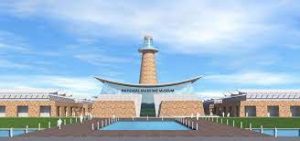
The Ministry of Culture (MoC) and Ministry of Ports, Shipping and Waterways (MoPSW) signed a Memorandum of Understanding (MoU) for ‘Cooperation in Development of National Maritime Heritage Complex (NMHC)’ at Lothal, Gujarat.
- NMHC will be developed in Lothal region of Gujarat.
- It would be developed as an international tourist destination, where the maritime heritage of India from ancient to modern times would be showcased.
- The idea is to create an edutainment (education with entertainment) approach for this destination that would be of great interest for the visitors.
- It is going to cover an area of 400 acres, with structures such as Heritage Theme Park, National Maritime Heritage Museum, Lighthouse Museum, Maritime Institute, eco-resorts, and more.
- There will also be many pavilions where all coastal states in India and union territories can showcase their artifacts and maritime heritage.
- The unique feature of NMHC is the recreation of ancient Lothal city, which is one of the prominent cities of the ancient Indus valley civilization.
About Lothal:
- Lothal was one of the southernmost cities of the ancient Indus Valley Civilization located in Gujarat.
- Construction of the city began around 2400 BCE.
Reform Linked Borrowing Window:

Indian states were able to borrow an extra Rs. 1.06 lakh crore in 2020-21 (FY21) due to the Reform Linked Borrowing window.
- This was announced to provide an additional leeway to states in order to cope with the adverse effects of Covid-19 pandemic on the economy.
- This was a nudge, incentivising the States to adopt progressive policies to avail additional funds.
- In October 2020, the Central government had linked permission for additional borrowing of 1% of their GSDP (Gross State Domestic Product) to implementation of four critical reforms, which are:
- Implementation of One Nation One Ration Card System,
- Ease of doing business reform,
- Urban Local body/ utility reforms and
- Power Sector reforms.
- Under this reforms-linked borrowing window, states were to get access to funds of up to Rs 2.14 lakh crore on completion of all the four reforms.
- For states completing three of the four reforms, the Centre would provide additional funds assistance of Rs. 2,000 crore for capital expenditure.
- For FY 2021-22, the net borrowing ceiling for states has been fixed at 4% of the projected GSDP (about Rs 8.46 lakh crore), based on recommendations of the Fifteenth Finance Commission.
Chapter II of Part XII of the Constitution of India deals with borrowing by the Central Government and State Governments.
- It comprises two provisions – Article 292 which covers borrowing by the Central Government and Article 293, which covers borrowing by State Governments.
- Article 293 (3) requires State Governments that are indebted to the Central Government to seek the consent of the Central Government before raising further borrowings.
Electoral Trust Scheme, 2013:

For the first time, an electoral trust (under Electoral Trust Scheme, 2013) has declared donation through electoral bonds and hasn’t revealed the names of the political parties that received the money, citing anonymity guaranteed under the electoral bond scheme.
- According to the Association of Democratic Reforms (ADR), this “practice is against the spirit of the Electoral Trusts Scheme, 2013 and the Income Tax Rules, 1962 which make it mandatory for trusts to furnish each and every detail about the donor contributing to the trust.
- If Electoral trusts start adopting this precedent of donating through bonds, it will be a complete situation of unfair practices i.e. total anonymity, unchecked and unlimited funding, free flow of black money circulation, corruption, foreign funding, corporate donations and related conflict of interest etc.
About the Electoral Trust Scheme:
- Electoral Trust is a non-profit organization formed in India for orderly receiving of the contributions from any person.
- Electoral Trusts are relatively new in India and are part of the ever-growing electoral restructurings in the country.
- Electoral Trusts Scheme, 2013 was notified by the Central Board of Direct Taxes (CBDT).
- The provisions related to the electoral trust are under Income-tax Act, 1961 and Income tax rules-1962.
- Objective: It lays down a procedure for grant of approval to an electoral trust which will receive voluntary contributions and distribute the same to the political parties.
- A political party registered under section 29A of the Representation of the People Act, 1951 shall be an eligible political party and an electoral trust shall distribute funds only to the eligible political parties.
60th Anniversary Of The Antarctic Treaty:
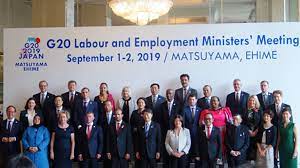
The 60th anniversary of the Antarctic Treaty was celebrated.
- The Antarctic treaty remains the only example of a single treaty that governs a whole continent.
- It is also the foundation of a rules-based international order for a continent without a permanent population
- The Antarctic Treaty was signed between 12 countries in Washington on 1st December 1959 for making the Antarctic Continent a demilitarized zone to be preserved for scientific research only.
- The twelve original signatories are Argentina, Australia, Belgium, Chile, France, Japan, New Zealand, Norway, South Africa, the Union of Soviet Socialist Republics, the UK and the US.
- It entered into force in 1961 and has since been acceded by many other nations.
- Antarctica is defined as all of the land and ice shelves south of 60°S latitude.
- Recently, an enormous iceberg ‘A-76’ has calved from the western side of the Ronne Ice Shelf, lying in the Weddell Sea, in Antarctica.
Members:
- Currently it has 54 parties. India became a member of this treaty in 1983.
Headquarters:
- Buenos Aires, Argentina.
Provisions:
- Promoting the freedom of scientific research.
- Countries can use the continent only for peaceful purposes.
- Prohibition of military activities, nuclear tests and the disposal of radioactive waste.
- Neutralising territorial sovereignty, this means a limit was placed on making any new claim or enlargement of an existing claim.
- It put a freeze on any disputes between claimants over their territories on the continent.
Antarctic Treaty System:
- It is the whole complex of arrangements made for the purpose of regulating relations among states in the Antarctic.
- Its purpose is to ensure in the interests of all mankind that Antarctica shall continue forever to be used exclusively for peaceful purposes and shall not become the scene or object of international discord.
- These agreements are legally binding and purpose-built for the unique geographical, environmental and political characteristics of the Antarctic and form a robust international governance framework for the region.
G20 Labour And Employment Ministers Meeting:

The Union Minister for Labour and Employment has said that India is making collective efforts to reduce gender gaps in labour force participation.
- He was delivering the Ministerial Address on Declaration and Employment Working Group Priorities at G20 Labour and Employment Ministers’ Meeting.
Issues Discussed:
- The Employment Working Group deliberated upon key issues, including women employment, social security and remote working.
- In 2014, G20 Leaders pledged in Brisbane to reduce the gap in labour force participation rates between men and women by 25% by 2025, with the aim of bringing 100 million women into the labour market, increasing global and inclusive growth, and reducing poverty and inequality.
Microfinance Institutions : RBI:
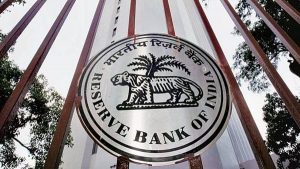
The Reserve Bank of India (RBI) proposed to lift the interest rate cap on Microfinance Institutions (MFIs), and said all micro loans should be regulated by a common set of guidelines irrespective of who gives them.
- RBI has suggested a common definition of microfinance loans for all regulated entities.
- Microfinance loans should mean collateral-free loans to households with annual household income of Rs 1,25,000 and Rs 2,00,000 for rural and urban/semi urban areas, respectively.
- For this purpose, ‘household’ means a group of persons normally living together and taking food from a common kitchen.
- RBI has mooted capping the payment of interest and repayment of principal for all outstanding loan obligations of the household as a percentage of the household income, subject to a limit of maximum 50%.
- Non-banking Financial Company (NBFC)-MFIs, like any other NBFC, shall be guided by a board-approved policy and the fair practices code, whereby disclosure and transparency would be ensured.
- There would be no ceiling prescribed for the interest rate. There would be no collateral allowed for micro loans.
- There can be no prepayment penalty, while all entities have to permit the borrowers to repay weekly, fortnightly or monthly instalments as per their choice.
Central Warehousing Corporation (CWC):

Union Cabinet approves merger of Central Railside Warehouse Company Limited (CRWC) with Central Warehousing Corporation (CWC).
- CWC is a Mini-Ratna Category-I CPSE.
- It is a statutory body which was established under ‘The Warehousing Corporations Act, 1962.
- It is a public warehouse operator established by the Government of India in 1957 for the purpose of warehousing of agriculture produce and certain other commodities notified by the Central Government and for matters connected there with.
- Headquarters: New Delhi.
Central Railside Warehouse Company Ltd.(CRWC):
- CWC formed a separate subsidiary company named ‘Central Railside Warehouse Company Ltd.’ (CRWC) in 2007 to develop Railside Warehousing Complexes (RWCs) on land leased from Railways.
- CRWC is a Mini-Ratna Category-II Central Public Sector Enterprises (CPSE) incorporated under the Companies Act, 1956.
- CRWC developed specialization, expertise and goodwill in development and operation of RWCs but due to shortage of capital and also due to some of the restrictive clauses in its MoU with Ministry of Railways, its pace of growth was not as expected.
- A separate Division with the name ‘RWC Division’ will be created by CWC for handling operations and marketing of RWCs.
Saint Vincent And The Grenadines:

The Union Cabinet has approved an Agreement between India and Saint Vincent and The Grenadines for the Exchange of Information and to provide assistance to each other in collection of tax claims.
- This is a new Agreement between the Republic of India and Saint Vincent and The Grenadines. There was no such agreement in past between the two countries.
- Agreement also contains tax examination abroad provisions which provide that a country may allow the representatives of the other country to enter its territory to interview individuals and examine records for tax purposes.
Saint Vincent and the Grenadines:
- Saint Vincent and the Grenadines is an island country in the Caribbean.
- It is located in the southeast Windward Islands of the Lesser Antilles, which lie in the West Indies at the southern end of the eastern border of the Caribbean Sea where the latter meets the Atlantic Ocean.
- Kingstown is the capital and main port.
Ranked-Choice Voting For Mayoral Polls: New York City:
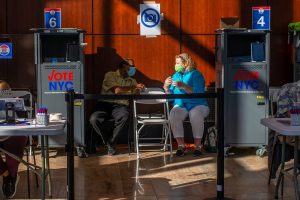
New York city used ranked-choice voting for Mayoral Polls.
- The method allows voters to rank candidates by preference rather than selecting just their top choice. New York City is having voters rank their top five — though voters are not required to choose five.
- Ranking candidates is far more complicated, but advocates believe it is fairer and more accurately reflects the collective will of the majority.
- If someone gets 50% plus one after all the first-choice votes are counted, then the election is over and that candidate wins.
- But if no one gets 50% plus one, it’s on to Round 2.
- The person with the lowest number of first-place votes is eliminated, and that candidate’s voters’ second choices get redistributed as votes for other candidates.
- This reallocation of votes goes on until someone reaches 50% plus one.
Information Fusion Centre For Indian Ocean Region (IFC-IOR):

The United Kingdom has appointed a liaison officer to the Indian Navy’s Information Fusion Centre for Indian Ocean Region (IFC-IOR), which is meant for maritime domain awareness.
- The IFC-IOR was set up in 2018 to coordinate with regional countries on maritime issues and act as a regional repository of maritime data.
- It presently has linkages with 21 partner countries and 22 multi-national agencies across the globe.
- It is located in Gurugram, India.
- The liaison officer will be based full-time at the centre, working directly with the Indian armed forces and fellow liaison officers from partner nations to enhance maritime domain awareness in the region.
- International Liaison Officers (ILO) from 13 countries have been invited, and ILOs from countries had joined earlier- Australia, France, Japan and the U.S.. The U.K. is the 5th country to post an ILO.
NIOS Diploma Course In Yogic Science:

Minister of State for Education Shri Sanjay Dhotre launched NIOS Diploma course in Yogic Science on the occasion of International Day of Yoga.
- The National Institute of Open Schooling (NIOS) was formerly known as National Open School.
- It is the National board of education under the Government of India that administers examinations for Secondary and Senior Secondary examinations similar to the CBSE and the CISCE. It also offers vocational courses after the high school.
- It is an autonomous institute under Union Ministry of HRD.
- Headquarters: Noida, Uttar Pradesh.
- NIOS operates through a network of five Departments, Regional Centres and Accredited Institutions (Study Centres) in India and abroad.
- It has a current enrolment of about 2.71 million students at Secondary, Senior Secondary & Vocational levels which makes it the largest open schooling system in the world.
Peter Pan Syndrome:

A special court in Mumbai granted bail to an accused of sexually assaulting a minor as he was suffering from Peter Pan Syndrome (PPS).
- A syndrome is a combination of symptoms and signs that together represent a disease process.
- PPS is a psychological condition that is used to describe an adult who is socially immature.
- People who develop similar behaviours of living life carefree, finding responsibilities challenging in adulthood, and basically never growing up suffer from PPS.
- The term was coined by psychologist Dan Kiley to explain the behaviour of such men who ‘refuse to grow’ and behave their age in 1983.
- Dan Kiley got the idea of PPS after noticing Peter Pan, a fictional character created by Scottish novelist James Matthew Barrie.
- Peter Pan was a care-free young boy, who never grew up.
- While the WHO (World Health Organization) does not recognise Peter Pan Syndrome as a health disorder, many experts believe it is a mental health condition that can affect one’s quality of life.
Symptoms:
- PPS hasn’t officially been diagnosed as a health disorder, there are no clearly-defined symptoms or characteristics or even reasons which cause it.
- However, it could affect one’s daily routine, relationships, work ethic, and result in attitudinal changes.
Tax Inspectors Without Borders (TIWB) programme:
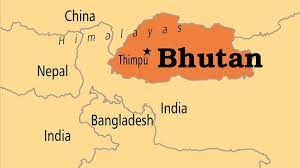
Bhutan’s Tax Inspectors Without Borders (TIWB) programme launched in partnership with India.
- This programme is expected to be of about 24 months’ duration.
- The focus of the programme will be in the area of International Taxation and Transfer Pricing.
- Through this India in collaboration with the UNDP and the TIWB Secretariat aims to aid Bhutan in strengthening its tax administration by transferring technical know-how and skills to its tax auditors, and through sharing of best audit practices.
About TIWB Programme:
- It is a joint initiative of the United Nations Development Programme (UNDP) and the Organisation for Economic Cooperation and Development (OECD).
- The objective of the TIWB Initiative is to enable sharing of tax audit knowledge and skills with tax administrations in developing countries through a targeted, real time “learning by doing” approach.
- TIWB is focused on promoting hands-on assistance by sending Experts to build audit and audit-related skills pertaining to specific international tax matters and the development of general audit skills within developing tax administrations.
Other Service Providers:
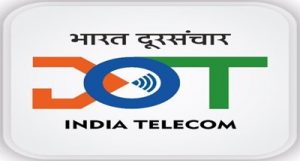
Department of Telecommunication has further liberalized the guidelines for Other Service Providers (OSPs).
- These entities are business process outsourcing (BPO) organisations giving Voice based services, in India and abroad.
- The Guidelines issued today further liberalized the special dispensation given to OSPs in addition to the major measures already announced and implemented in November, 2020.
The main features of the liberalised guidelines announced today are:
- Distinction between Domestic and International OSPs has been removed. A BPO centre with common Telecom resources will now be able to serve customers located worldwide including in India.
- EPABX (Electronic Private Automatic Branch Exchange) of the OSP can be located anywhere in the world. OSPs apart from utilising EPABX services of the Telecom Service Providers can also locate their EPABX at third Party Data Centres in India.
- With the removal of the distinction between Domestic and International OSP centres, the interconnectivity between all types of OSP centres is now permitted.
- Remote Agents of OSP can now connect directly with the Centralised EPABX/ EPABX of the OSP/ EPABX of the customer using any technology including Broadband over wireline/ wireless.
Dr. Syama Prasad Mukerjee:
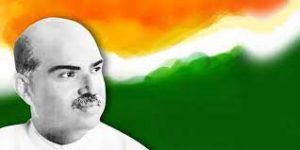
PM Modi has paid tributes to Dr. Syama Prasad Mookerjee on his Punya Tithi.
- Syama Prasad Mukherjee (1901 – 1953) was an Indian politician
- In 1934, at the age of 33, he became the youngest Vice-Chancellor of the University of Calcutta; he held the office until 1938.
- Mukherjee joined the Hindu Mahasabha in Bengal in 1939 and became its acting president that same year.
- He was also the president of Akhil Bharatiya Hindu Mahasabha from 1943 to 1946. He died in the custody of Jammu and Kashmir Police in 1953.
- In 1946, he was elected as a member of the Constituent Assembly of India in the same year.
- He served as the Minister for Industry and Supply in Prime Minister Jawaharlal Nehru’s cabinet.
- He quit Congress because of differences of opinion with Nehru led government on the issue of Jammu & Kashmir.
- He founded the Bharatiya Jana Sangh, the predecessor to the Bharatiya Janata Party, in 1951.




